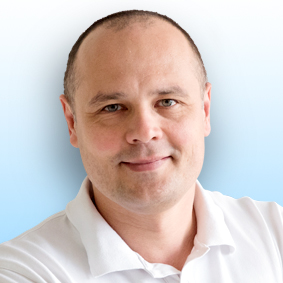Cardiology
Cardiology is one of the most rapidly developing fields of medicine and the internal cardiology clinic is amongst the largest centres of cardiology in the Czech Republic. We focus on the prevention and treatment of coronary heart disease, (annually, our experienced doctors perform more than 2500 examinations of coronary arteries and carry out more than 1500 percutaneous coronary interventions) and also on medical interventions for defective atrial septa and catheter-based left atrial appendix occlusion procedures (LAAO). The interventional cardiology unit functions as an international educational Centre of Excellence for complex coronary interventions and coronary imaging as well as organising regular overseas training and participating in the organization and/or program of the largest European and North American congresses, EuroPCR and TCT. A further extensive field within our workplace in which we achieve excellent results is the treatment of arrhythmias. Radiofrequency ablation plays an important role in the treatment of heart rhythm defects. Using this method we treat less serious, albeit it uncomfortable superaventricular arrhythmias, or serious ventricular arrhythmias. Annually we carry out 250–300 radiofrequency ablations.

For patients with reduced heart rate frequency we offer pacemaker implantation. A pacemaker is a small medical device which corrects a slow heart rhythm with electrical impulses, which are delivered via electrodes. Depending on the type of the condition we use a single-chamber pacemaker (serving only the right ventricle) or a dual-chamber pacemaker (serving the right atrium and ventricle of the heart). Implantation is carried out under local anaesthetic and the procedure lasts roughly 45 minutes. The period of hospitalisation is usually 2 days.
For patients at a high risk of ventricular arrhythmia we offer the implantation of implantable cardioverter-defibrillators (ICD). An ICD is a medical device which is able to stop life-threatening arrhythmias through electrical discharge (defibrillation) or rapid stimulation. Depending on the type of the condition, we use a single-chamber device (primarily for the treatment of malignant arrhythmias) or a dual-chamber device (when there is a need also for heart stimulation in the case of a slow heart rhythm). Implantation is carried out under local anaesthetic and the procedure lasts roughly 45-60 minutes. The period of hospitalisation is usually 2-3 days.
For patients with heart failure connected with arrhythmia we offer the implantation of a device for heart resynchronization – an ICD or PM. Cardiac Resynchronization Therapy involves the implantation of a device which can simultaneously stimulate both heart ventricles whilst improving blood flow between the chambers and the overall functioning of the heart. CRT involves the placing of a device usually composed of three electrodes (one in the right atrium, the second in the right ventricle and the third in the vein above the left ventricle). Implantation is carried out under local anaesthetic and the procedure lasts roughly 90 minutes. Hospitalisation is usually three days.

